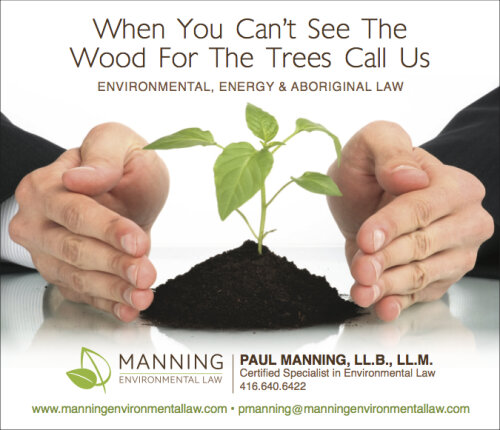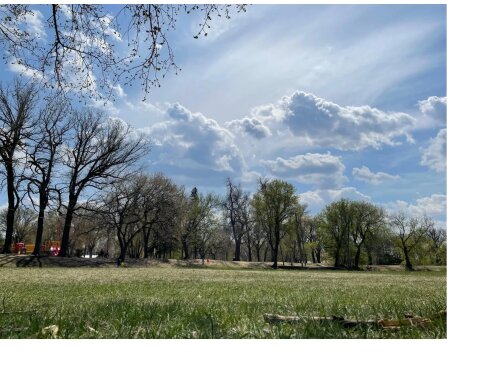Best Energy, Environment & ESG Lawyers in Toronto
Share your needs with us, get contacted by law firms.
Free. Takes 2 min.
List of the best lawyers in Toronto, Canada
About Energy, Environment & ESG Law in Toronto, Canada
Energy, Environment and ESG (Environmental, Social, and Governance) law in Toronto covers the complex legal framework that governs energy production and use, environmental protection, and corporate responsibility standards. Toronto, as Canada’s largest city and Ontario’s economic engine, plays a pivotal role in shaping innovative strategies for sustainable development. The practice typically involves navigating federal, provincial, and municipal regulations that affect businesses, landowners, public organizations, and individuals. Common topics include clean energy initiatives, regulatory compliance, pollution controls, climate change response, sustainable investing, and mandated ESG disclosures.
Why You May Need a Lawyer
Legal issues in energy, environment, and ESG law can be complex and often require expert guidance. Some common situations where you may need a lawyer include:
- Obtaining permits for new construction or industrial projects that may impact the environment
- Navigating regulations around renewable energy projects such as solar or wind farms
- Responding to enforcement actions or environmental investigations by government agencies
- Dealing with allegations of pollution or non-compliance with environmental standards
- Understanding new requirements for ESG reporting and disclosure for publicly traded companies
- Advising on corporate social responsibility and sustainable business practices
- Managing contaminated land or brownfield redevelopment projects
- Pursuing litigation or negotiation in environmental, land use, or energy disputes
- Protecting Indigenous land rights and interests related to energy or environmental projects
- Ensuring compliance with climate change mitigation policies and carbon reduction targets
Local Laws Overview
Toronto’s legal landscape for energy, environment, and ESG topics is shaped by federal, provincial, and municipal laws. At the federal level, key legislation includes the Canadian Environmental Protection Act, Impact Assessment Act, and regulations concerning greenhouse gases and pollution control. Ontario’s Environmental Protection Act and Clean Energy Act govern many provincial regulations, including approvals for waste management, emissions controls, and energy project licensing.
The City of Toronto has its own environmental bylaws covering waste reduction, green development standards, tree protection, and stormwater management. There are also Toronto-specific climate action plans and requirements for sustainable building, such as the Toronto Green Standard. For companies, federal and provincial securities regulators increasingly require ESG disclosures, climate risk reporting, and responsible corporate governance. Professional legal advice helps clients comply with all levels of regulation and manage risk associated with rapid legal changes in these areas.
Frequently Asked Questions
What is ESG and why does it matter for businesses in Toronto?
ESG stands for Environmental, Social, and Governance. It refers to criteria used to evaluate a company’s operations and impacts beyond financial performance. Many businesses in Toronto are now required or strongly encouraged to report on their ESG practices, as investors, regulators, and consumers expect greater transparency and responsibility.
What are my obligations if my company is developing a new energy project?
You must comply with federal, provincial, and municipal laws regarding permits, environmental assessments, community consultations, and potentially Indigenous engagement. Each project type and location has different requirements.
Do I need environmental permits for home renovations or construction?
Most large-scale renovations or projects near protected areas, waterways, or with significant soil disruption will require permits. It is always best to consult with your local municipality or a lawyer to ensure compliance.
What are the penalties for violating environmental laws in Toronto?
Penalties can include hefty fines, orders to clean up or remediate damage, and, in some cases, criminal charges for severe or willful violations.
How does Toronto regulate greenhouse gas emissions?
Toronto follows both federal and provincial regulations to reduce greenhouse gases, including emissions standards, carbon pricing, and participation in climate action plans. The city also encourages energy efficiency in buildings and transportation.
What is the Toronto Green Standard?
The Toronto Green Standard is a set of sustainable design requirements for new buildings in Toronto, aimed at improving energy efficiency, reducing environmental impact, and promoting healthy communities.
Are there special considerations for Indigenous land rights in energy or environment projects?
Yes. Consultation with Indigenous communities is often required for projects that may affect their rights or traditional lands. Failing to do so can halt or delay projects and lead to legal challenges.
What should I do if I receive an environmental notice of violation?
Contact a lawyer immediately. They can help you understand the notice, your obligations, and potential defenses. Quick action is essential to minimize penalties or further consequences.
What are the reporting requirements for ESG in Canada?
Publicly traded companies are increasingly required to disclose ESG risks and practices in their financial filings. Companies should stay informed of evolving securities regulations and best practices in transparency and reporting.
Who enforces environment and energy laws in Toronto?
At the federal level, enforcement is typically managed by Environment and Climate Change Canada. In Ontario, the Ministry of the Environment, Conservation and Parks is responsible. The City of Toronto also enforces its own environmental bylaws.
Additional Resources
- Ministry of the Environment, Conservation and Parks (Ontario)
- Environment and Climate Change Canada
- City of Toronto Environment and Energy Division
- Ontario Securities Commission (for ESG reporting requirements)
- Toronto Environmental Alliance
- Clean Energy Canada
- Environmental Commissioner of Ontario (reports and archives)
- Canadian Bar Association Environmental, Energy and Resources Law Section
- Indigenous and Northern Affairs Canada (land and consultation issues)
Next Steps
If you believe you need legal assistance with an energy, environmental, or ESG issue, it is important to gather all relevant documents and information related to your situation. You should consider consulting with a lawyer or law firm that specializes in this area of law. Many offer initial consultations to discuss your circumstances and provide guidance on potential next steps. Acting promptly helps ensure compliance, protects your interests, and reduces risks of penalties or project delays.
For general information, reach out to relevant government agencies, review reputable resources, and consider contacting professional organizations for referrals to qualified lawyers in Toronto experienced in Energy, Environment, and ESG law.
Lawzana helps you find the best lawyers and law firms in Toronto through a curated and pre-screened list of qualified legal professionals. Our platform offers rankings and detailed profiles of attorneys and law firms, allowing you to compare based on practice areas, including Energy, Environment & ESG, experience, and client feedback.
Each profile includes a description of the firm's areas of practice, client reviews, team members and partners, year of establishment, spoken languages, office locations, contact information, social media presence, and any published articles or resources. Most firms on our platform speak English and are experienced in both local and international legal matters.
Get a quote from top-rated law firms in Toronto, Canada — quickly, securely, and without unnecessary hassle.
Disclaimer:
The information provided on this page is for general informational purposes only and does not constitute legal advice. While we strive to ensure the accuracy and relevance of the content, legal information may change over time, and interpretations of the law can vary. You should always consult with a qualified legal professional for advice specific to your situation.
We disclaim all liability for actions taken or not taken based on the content of this page. If you believe any information is incorrect or outdated, please contact us, and we will review and update it where appropriate.
Browse energy, environment & esg law firms by service in Toronto, Canada
Toronto, Canada Attorneys in related practice areas.

















